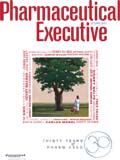Antonio Gotto: Pathfinder in Primary Care
Pharmaceutical Executive
Antonio Gotto, MD, Dean, Weill Cornell Medical College
Few clinicians have been as central to the development of treatments that demonstrate the value of medicines in advancing public health as Dr. Antonio Gotto. Currently serving as Dean of the Weill Cornell Medical College in New York, Gotto is best known for his research to identify the central role that lipoproteins play in the development of atherosclerosis and cardiovascular disease—the leading causes of death and disability in most countries today and thus a major driver of the healthcare cost burden. Studies that built on his work have shown that changes in serum cholesterol levels can lower the incidence of heart disease, coronary infarctions, and stroke, which has led in turn to the introduction of one of the most successful and cost-effective medical interventions of the last 30 years—the statin drug.

Antonio Gotto, MD
Gotto's career is also defined by his early advocacy of translational research, which is now accepted as a given in the discovery process but rarely figured in the clinical dialogue when he began investigating how biochemistry could be applied to understanding the pathophysiological basis of diseases such as cancer and CVD in the 1960s. Inevitably, persistence in the face of long lead times became a key character trait. "It required nearly two decades to structure and sequence the DNA of a key protein in plasma lipoproteins (apolipoprotein B), work which we commenced in 1967, only concluding with the peer review publication of our findings in 1985." According to Gotto, the policy message that should resonate from this long experience is that maintaining a predictable climate for the conduct of research is necessary to ensure that good ideas have the solid institutional grounding to move forward. This is a priority for Gotto as Dean at Weill Cornell, where he is spearheading a campaign to raise $1.3 billion for discovery research in eight therapeutic areas of unmet medical need.
Gotto is passionate about the contributions industry makes in driving research toward the practical endpoint of a safe and clinically useful drug that represents an advance in treatment. "The New York Times asked me recently why I was involved in work with the drug industry. I gave them a simple answer: Because in my area, that's where the action is." Over the years, perspectives have shifted and some initial challenges of working with companies, including expectations that their relationship with researchers like Gotto be exclusive and proprietary, have faded. Says Gotto, "We now have a consensus that prospects of success are greatest when we can pool resources and expertise, not just from industry but from government and the academic centers as well. Reliance on this integrative model is bearing fruit, as seen in the upward trend in FDA registrations so far this year."
Gotto distills from his decades in the arena the value of educating the public around basic medical interventions that work. He prizes his long association with the late cardiovascular surgeon Michael DeBakey, with whom he established the nation's first research center on heart disease that produced landmark work on ways that patients could improve their condition with simple changes in behavior, such as diet and exercise. Drs. Gotto and DeBakey were among the first to introduce what we now call a preventive and wellness agenda, as a fundamental adjunct to research. "The problem we still have today is our medical payment system provides little incentive to advance a preventive health agenda."
Nevertheless, Gotto believes that once again good research can lead to action. "Most current R&D on lipid control is focused on the middle-aged and older population cohort. What we need now is to see how targeting these therapies for use even earlier in life can prevent the onset of coronary disease at a later stage. Why is it that right up to the 20th century, average levels of LDL in the human population were much less than they are today? It may be a lifestyle issue, so if we want to get back to these good levels we have to focus on a combination of prevention and progress in making the next generation of statins safer and more effective for long-term use." – William Looney

Addressing Disparities in Psoriasis Trials: Takeda's Strategies for Inclusivity in Clinical Research
April 14th 2025LaShell Robinson, Head of Global Feasibility and Trial Equity at Takeda, speaks about the company's strategies to engage patients in underrepresented populations in its phase III psoriasis trials.
Beyond the Prescription: Pharma's Role in Digital Health Conversations
April 1st 2025Join us for an insightful conversation with Jennifer Harakal, Head of Regulatory Affairs at Canopy Life Sciences, as we unpack the evolving intersection of social media and healthcare decisions. Discover how pharmaceutical companies can navigate regulatory challenges while meaningfully engaging with consumers in digital spaces. Jennifer shares expert strategies for responsible marketing, working with influencers, and creating educational content that bridges the gap between patients and healthcare providers. A must-listen for pharma marketers looking to build trust and compliance in today's social media landscape.
Pfizer, GSK Gain ACIP Recommendations for RSV and Meningococcal Vaccines
April 18th 2025The Centers for Disease Control and Prevention’s Advisory Committee on Immunization Practices voted to expand access to Pfizer’s respiratory syncytial virus vaccine Abrysvo for high-risk adults in their 50s and voted in favor of GSK’s meningococcal vaccine, Penmenvy, for streamlined adolescent protection.